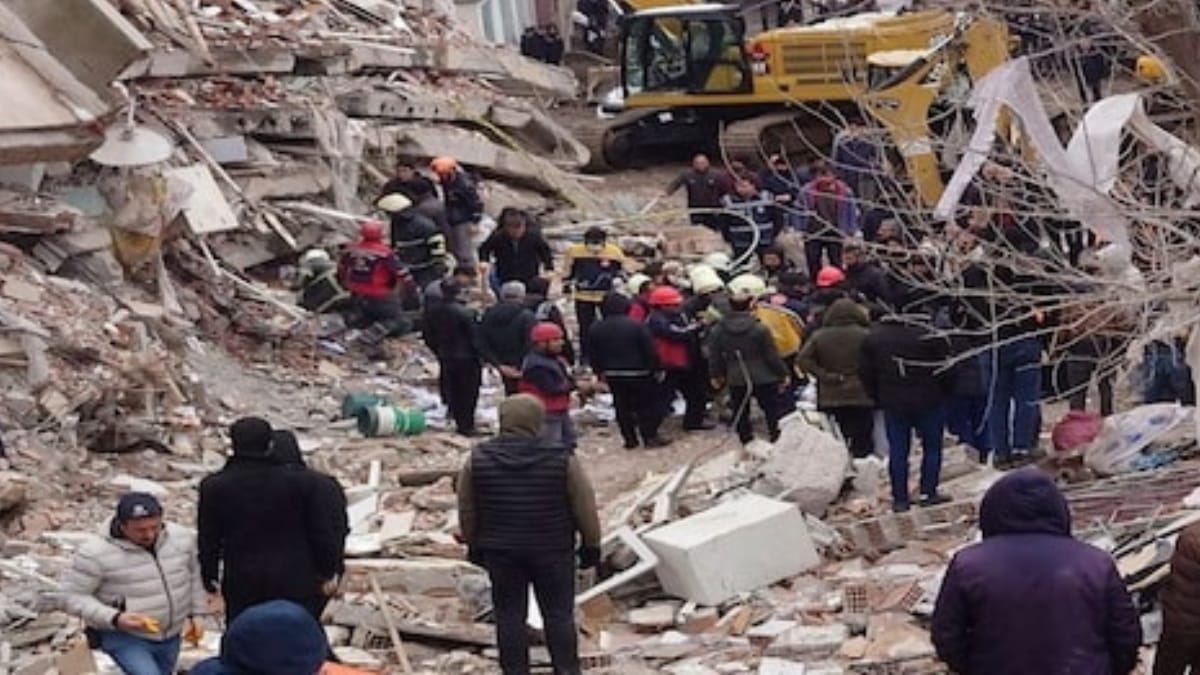Over 19,000 people have been killed and tens of thousands injured in Turkey and Syria since Monday as a result of five consecutive earthquakes. The official death toll from Monday’s 7.8-magnitude earthquake, according to officials and medical personnel, is now 16,035. This includes 12,873 deaths in Turkey and 3,162 in Syria. In the frigid temperatures, rescuers scrambled to release trapped survivors.
Several provinces, including Gaziantep, Sanliurfa, Diyarbakir, Adana, Adiyaman, Malatya, Osmaniye, Hatay, and Kilis, were shaken on Monday by a 7.8-magnitude earthquake that was centred in the Pazarcik region and rattled Kahramanmaras. A 7.6-magnitude earthquake that was centred in the Elbistan district of Kahramanmaras shook the area later that day. Lebanon and Syria, two neighbouring nations, both reported feeling the effects of the earthquake. Turkey’s Goksun was struck by the third earthquake of 6.0 Richter magnitude. The initial 7.8-magnitude earthquake to strike southern Turkey early on Monday was the nation’s strongest earthquake in more than 80 years, according to the United Nations.
With over 19,300 fatalities, the earthquake that slammed Turkey and Syria is now one of the deadliest in recent memory, surpassing the number of fatalities from Japan’s Fukushima disaster. There has been extensive damage as a result of the earthquake, which had its epicentre in the province of Kahramanmaras in southeast Turkey.
The earthquake not only resulted in the tragic loss of life, but it also seriously damaged the infrastructure and built environment. Aid agencies are working around the clock to give emergency relief and assistance as many individuals have been left homeless. More than 3,000 fatalities and more than 5,000 injuries have been reported on the Syrian side of the border.
The death toll from the earthquake has already overtaken that from Japan’s Fukushima accident in 2011. A 9.0 magnitude earthquake and associated tsunami that caused extensive damage and nuclear meltdowns at the Fukushima Daiichi nuclear power facility resulted in the Fukushima disaster.
Recep Tayyip Erdogan, the president of Turkey, was due to visit the earthquake-stricken regions of Gaziantep, Osmaniye, and Kilis despite continued complaints that the government’s reaction time has been too long. The international community has come together to support and assist people affected by the calamity while rescue efforts are ongoing nonstop.
Standing with Türkiye in this natural calamity. India’s @NDRFHQ is carrying out rescue and relief operations at ground zero.
Team IND-11 successfully retrieved a 6 years old girl from Nurdagi, Gaziantep today. #OperationDost pic.twitter.com/Mf2ODywxEa
— PIB – Ministry of Home Affairs (@PIBHomeAffairs) February 9, 2023


